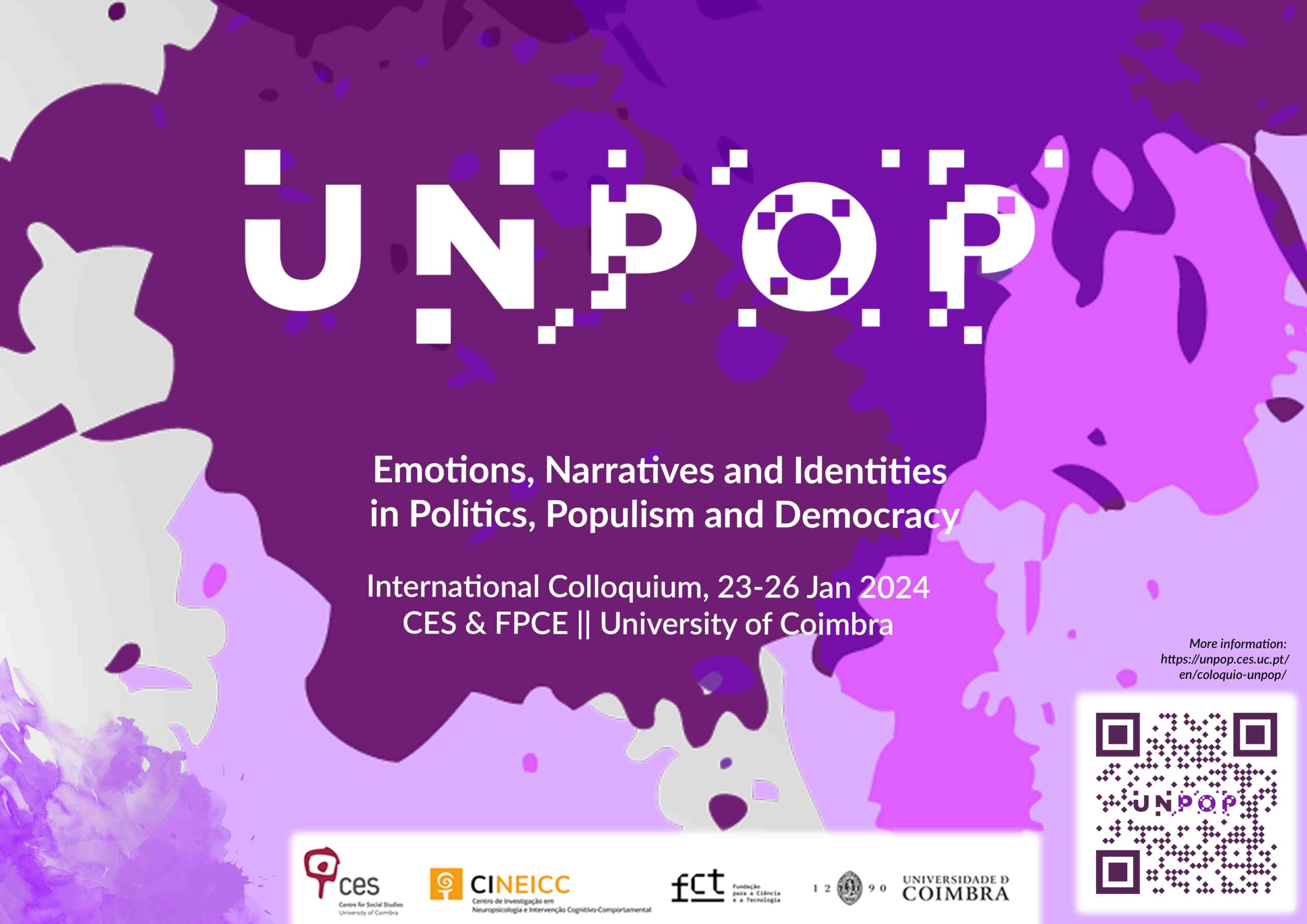With: Emilia Palonen, George Marcus, João Figueiredo, José Santana Pereira, Paula Diehl, Paolo Cossarini and Tereza Capelos
Chair: Gaia Giuliani

18h30-20h00 (Lisbon GMT)
Place: Salão Brazil || Largo do Poço, nº3, 1st Floor
—
Emilia Palonen
Senior Researcher in Political Science at the Faculty of Social Sciences, University of Helsinki, is the leader of the HEPPsinki research group. and she is PI of the Academy of Finland project WhiKnow (2019-2022), the Kone Foundation project Now-Time Us Space (2020-24), the European Commission-funded DRad project (2020-2023), and the Academy of Finland and other Trans-Atlantic Partnership project funders ENDURE exploring resilience in crisis (2022-2024).
George Marcus
Emeritus professor of political science at Williams College. His current research continues the role of emotion in democratic politics. He is the author, co-author, and co-editor of many books and has published numerous articles in political science journals, all available here. He was a co-editor as well as a contributor to several edited volumes. He was co-founder and, for 12 years, co-editor of the journal Political Methodology. He serves on the editorial board of the journal Political Psychology. He also has received numerous grants and awards.
João Figueiredo
PhD in High History Studies (Empire, politics, and post-colonialism) and in Human Rights, both at the University of Coimbra. His work focuses on Portuguese colonialism, and he has collaborated with the Educational Service of the Douro Museum. As an anti-racist activist, he has collaborated with Djass – Association of Afro-descendants and SOS Racism. He has written several book chapters and peer-reviewed articles for several journals.
José Santana Pereira
PhD in Political and Social Sciences (Italy). His research has focused on the field of media effects on public opinion and the study of national media systems from a comparative perspective, as well as electoral behaviour and political attitudes, especially populist attitudes. He has published several articles and book chapters in Portuguese, English, and French. He is a leader, co-leader, country coordinator, researcher in many European projects, and a team member responsible for the ICS-ISCTE Polls.
Paula Diehl
Paula Diehl, born in Porto Alegre, Brazil. Since April 2019 Professor of Political Science specialising in Political Theory and the History of Ideas at Kiel University. Diehl is an Associate Researcher of the Max Planck Institute for Human Development in Berlin and the Sciences Po in Paris. Several guest professorships in the USA and Europe. 2002 Doctoral degree, 2013 Habilitation (postdoctoral lecture qualification) at Humboldt-Universität zu Berlin.
Paolo Cossarini
María Zambrano Fellow at the Department of Constitutional Law, Political Science and Administration (University of Valencia), and member of the DEMOS research group (Aalborg University). He held Postdoctoral research, lectures and visit positions in Denmark, Italy, UK, and France. He has published several articles and is co-editor of many books. His research focuses on populism and nationalism, Italian and Spanish politics, protest movements, EU politics, and civil society organisations.
Tereza Capelos
Associate Professor in Politics and IR at the University of Southampton, she studies the psychological processes, mechanisms, and dynamics that explain political behaviour. Her recent work focuses on grievance politics, particularly resentful emotionality, and reactionary orientations as determinants of anti-democratic and authoritarian political preferences. She also examines the role of uncertainty, anxiety, trust, and empathy as determinants of polarisation vs. cooperation during crises and tensions. She is co-editor of the Palgrave Studies in Political Psychology and publishes articles in several international peer-review journals. She is also a Standing Group Co-Convener for the Political Psychology Standing Group of the European Consortium for Political Research (ECPR) and Former President of the International Society of Political Psychology. She has recently been awarded two Horizon Europe projects focusing on the role of emotions in democratic governance.

